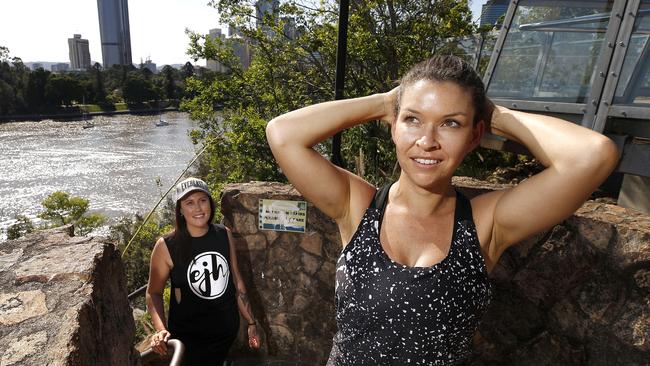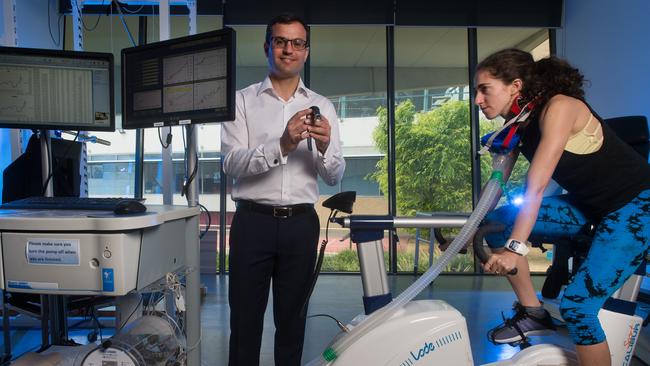Scientists investigate hundreds of genes shaping our response to physical exercise.
NOT getting the results you want from your workout? Melbourne scientists believe your genes could be to blame in a discovery that could change the way you approach exercise.
VIC News
Don't miss out on the headlines from VIC News. Followed categories will be added to My News.
NOT getting the results you want from your workout?
Melbourne scientists believe your genes are partly to blame, but that’s not an excuse to give up.
By understanding the genes shape people’s response to physical activity, Melbourne researchers hope it will allow personalised programs to be developed that boost individual’s exercise outcomes.
FIT FATHERS MAY BOOST BRAIN HEALTH OF UNBORN BABIES
NEW AUSTRALIA FIRST EXERCISE PROGRAM FOR CANCER PATIENTS
GUT TRAINING COULD GIVE ATHLETES THE EDGE OVER COMP

“People who aren’t responding well to training often give up and we don’t want that to happen because we know that exercise is important for everyone,” Victoria University’s Dr Nir Eynon said.
“We know that even if you have wrong genes that predispose you to exercise intolerance, if you do tailored training then this environment can influence the genes and you can still get good results.”
A speed gene has already been uncovered, which helps explain why some people are better suited to short bursts of exercise and others thrive on endurance activities.
“But now we know there are hundreds, if not thousands of genes, that are associated with health and exercise responses,” Victoria University’s Dr Nir Eynon said.
“We are looking at how the genes can predict a person’s response to training at the muscle level.”
For instance some people’s genes mean their muscles naturally work harder to produce greater amounts of energy.

As part of an international trial, his team are putting males aged 18-45 through a four week high intensity exercise program.
“If I put two people in the gym and give them the same training one person can improve their performance 5 per cent and the other gets a 25 per cent improvement, so there’s a huge difference.”
It may be that person who doesn’t respond as well needs longer durations of exercise, or a different activity.
His team have received $400,000 from the National Health and Medical Research Council.
Ultimately, Dr Eynon said he hopes his research findings will be used to develop personalised exercise programs to prevent or manage disease, particularly those with associated with poor muscle function like diabetes and osteoporosis.
The Skeletal Muscle Adaptive Response to Training (Gene-SMART) study is recruiting Victorian men: www.vu.edu.au/speed-gene


